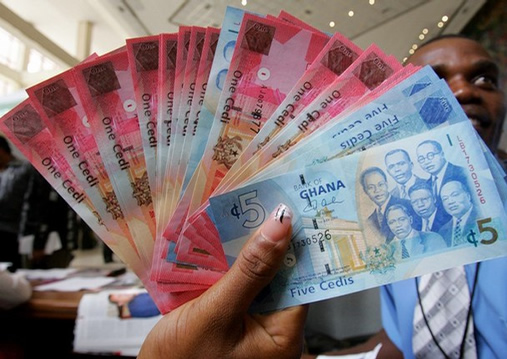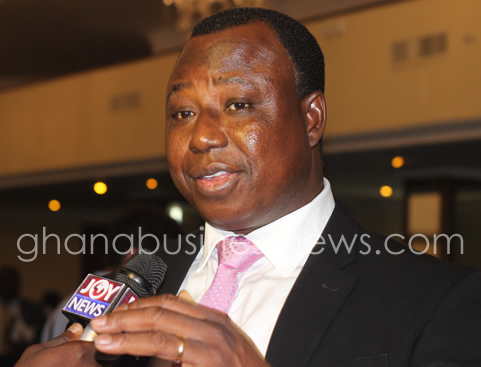
By Daniel ANKOMAH
The recent appreciation of the Ghanaian cedi has generated significant interest among investors, market analysts and policy-makers alike.

While the strengthening of the currency has contributed to easing inflationary pressures and enhancing local purchasing power, it also raises critical considerations for both retail investors and portfolio managers, particularly those with exposure to foreign currency assets and sectors dependent on export revenues.
In light of these developments, what actions should investors in Ghana undertake? The following financially prudent strategies can be employed to maximise returns and mitigate potential losses during this period of global economic uncertainty.
Evaluate exposure to foreign currency assets
A stronger cedi diminishes the local value of foreign currency-denominated investments. While hard currency instruments have long served as a reliable hedge against domestic currency weakness, recent market dynamics have shifted, at least in the short term. Over the past decade, portfolios with meaningful offshore exposure were consistently rewarded, reinforcing the strategic value of diversifying into foreign assets.
However, in the current environment, investors with substantial foreign currency holdings may find it prudent to rebalance their portfolios and reassess near-term allocations. Where short-term returns are insufficient to justify the accompanying currency risk, tactical adjustments such as trimming exposure to FX-denominated instruments may be appropriate.
Importantly, such decisions should be guided by a long-term policy framework rather than reactive repositioning. The cedi’s trajectory remains sensitive to macroeconomic conditions, capital flows and fiscal developments, all of which can shift the balance of risks.
Position for gains in import-reliant sectors
One of the immediate beneficiaries of cedi strength is the class of import-heavy companies. Companies, especially in the consumer goods and retail sectors, stand to benefit greatly from lower input costs, improved margins and potential pricing flexibility. Listed equities in this segment could see improved earnings in upcoming quarters. Investors may find value in accumulating fundamentally sound stocks that rely heavily on imported raw materials or finished goods.
Monitor export-driven businesses: Export-oriented businesses could see pressure
Companies that earn revenues in foreign currency may see reduced profitability when earnings are converted into cedis. Exporters and firms engaged in non-traditional exports and sectors like tourism may experience a slowdown in profitability if the appreciation is sustained. For now, a cautious approach to companies in these sectors is advisable unless they are actively hedging or have a diversified customer base.
Be tactical with real estate and alternatives
In times of cedi weakness, real estate and hard assets typically attract capital. As the currency strengthens, interest in dollar-pegged real estate, particularly among diaspora investors, may wane. This could slow upward pricing pressure and create tactical opportunities in the local property market. This may be the period to cautiously execute some bargain deals.
Consider local bonds and treasury instruments
Cedi strength, coupled with falling inflation, has improved the real returns on local fixed-income instruments. For the first time in a while, medium-term bonds and money market products are offering compelling yields for both retail and institutional investors without the looming threat of value erosion from currency depreciation. This presents a good opportunity to consider increasing allocations to cedi-denominated money market and income-focused equity funds in order to take advantage of the improved yield environment.
Watch for central bank and fiscal signals
It is important to keep an eye on how the Bank of Ghana responds to sustained currency strength. A strong cedi may create room for rate cuts if inflation continues to ease, and this could impact fixed income yields going forward. On the fiscal side, sustained external support, prudent debt management and progress with structural reforms remain key indicators to watch.
Stay disciplined with diversification
As always, the case for diversification remains valid. Currency movements, especially in emerging and frontier markets like Ghana, can be swift and unpredictable. Investors should avoid overreacting to short-term shifts and maintain well-balanced portfolios across geographies, asset classes and sectors.
Conclusion
In summation, the recent appreciation of the Ghanaian cedi presents a positive shift in the economic landscape; however, it necessitates a strategic and proactive approach from investors. This development underscores the importance for both asset managers and investors to implement well-defined policies regarding currency exposure. In the absence of a comprehensive investment strategy that adequately addresses currency risk, portfolios may remain susceptible to volatility.
Currently, Ghana’s capital market is characterised by a scarcity of effective hedging instruments, which complicates the management of currency risk. As such, it is imperative for investors to take this opportunity to rebalance their portfolios, critically reassess their risk exposure and remain vigilant in light of the evolving macroeconomic conditions. Adopting a forward-thinking approach will be essential for navigating the complexities of the current financial environment and optimising investment outcomes.
>>>the writer is a seasoned financial analyst, licensed investment advisor and the Chief Investment Officer at SAS Investment Management Ltd. (SAS-IM). With a strong passion for advancing investment knowledge across Ghana and Africa, he is committed to driving innovative solutions that empower investors and promote financial growth.
The post Chris Koney’s column: Cedi appreciation: What should investors be doing? appeared first on The Business & Financial Times.
Read Full Story




























Facebook
Twitter
Pinterest
Instagram
Google+
YouTube
LinkedIn
RSS